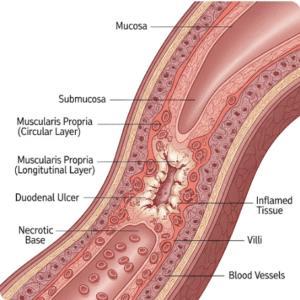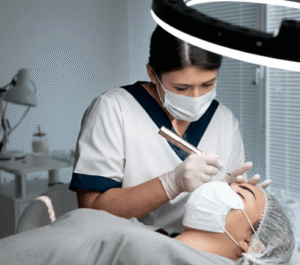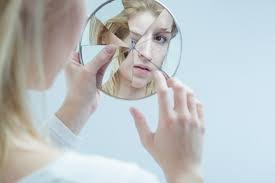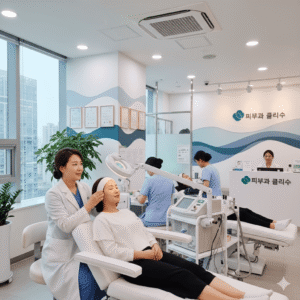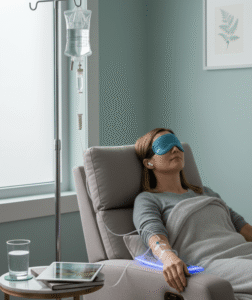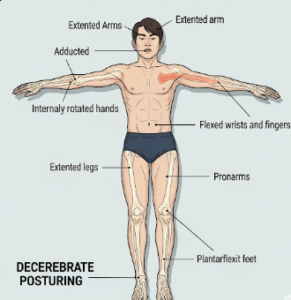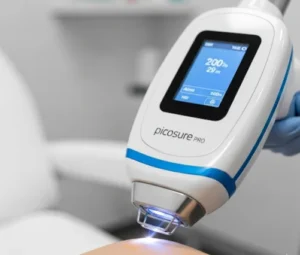What it is
Counseling for sexual dysfunction is a therapeutic process that helps individuals or couples address issues that interfere with sexual desire, arousal, satisfaction, or performance. Unlike purely medical treatments, counseling focuses on the emotional, psychological, and relational aspects of sexual health.
Key points about counseling for sexual dysfunction:
• Can be individual or couple-based sessions
• Addresses conditions like low libido, dyspareunia (painful intercourse), erectile dysfunction, or orgasmic difficulties
• Uses structured therapeutic approaches such as sex therapy, CBT, or couples counseling
• Complements medical treatments when dysfunction has physical causes
In Korea, sexual dysfunction counseling is available in women’s hospitals, sexual health clinics, private counseling centers, and university hospitals, often combined with medical support.
Why it’s done
Sexual dysfunction often affects not just intimacy but also self-esteem, relationships, and overall quality of life. Counseling is done to provide tools and guidance for overcoming these challenges.
Reasons for counseling include:
→ Helps identify and address psychological or emotional barriers
→ Provides coping strategies for performance anxiety or trauma
→ Improves communication and intimacy between partners
→ Supports women facing postpartum or menopausal sexual changes
→ Enhances outcomes when paired with medical treatments
In Korea, counseling is recognized as a core part of sexual healthcare, ensuring that both mind and body are treated together.
Alternatives
While professional counseling is the most effective method, some individuals try self-help or supportive alternatives.
Alternatives and supportive practices include:
• Reading sex education books or attending workshops
• Practicing mindfulness and relaxation techniques to reduce anxiety
• Keeping a journal to identify emotional triggers and patterns
• Trying self-guided communication exercises with a partner
• Exploring lifestyle adjustments like exercise, stress management, and nutrition
Note: These alternatives may support progress but cannot fully replace counseling, especially for persistent or complex dysfunction.
Preparation
Preparation helps patients and couples get the most out of counseling sessions.
How to prepare:
→ Keep a record of symptoms (low desire, pain, difficulty with arousal or orgasm)
→ Be honest about medical history, childbirth experiences, or menopausal changes
→ Identify relationship challenges or stressors that may contribute
→ Write down questions or goals for therapy (e.g., improving intimacy, reducing anxiety)
→ Decide whether to attend individually or with a partner
In Korea, many clinics offer private, supportive environments, ensuring comfort in discussing sensitive issues.
How it’s done
Counseling for sexual dysfunction in Korea is delivered through structured, personalized sessions.
Common approaches include:
• Sex therapy:
→ Focuses on sexual education, communication, and intimacy exercises
→ May include “homework” assignments such as touch exercises or relaxation techniques
• Cognitive-behavioral therapy (CBT):
→ Helps reframe negative thoughts related to sexual performance
→ Reduces anxiety, stress, and guilt associated with intimacy
• Couples counseling:
→ Encourages open dialogue between partners about needs and concerns
→ Builds trust, empathy, and cooperation in managing dysfunction
• Trauma-informed therapy:
→ Helps patients process past abuse, trauma, or painful experiences
→ Rebuilds confidence and emotional safety in sexual relationships
• Integration with medical treatment:
→ Works alongside hormone therapy, vaginal rejuvenation, or medication
→ Ensures a balanced approach to both physical and emotional aspects
In Korea, many clinics use multidisciplinary teams, where gynecologists and psychologists collaborate to provide holistic care.
Recovery
Recovery from sexual dysfunction counseling is not about a quick fix—it’s about gradual progress and long-term improvement.
Recovery guidelines:
→ Be consistent with therapy sessions and follow assigned exercises
→ Communicate openly with the partner to strengthen intimacy
→ Practice stress management to reduce psychological triggers
→ Track progress in a journal for reflection and adjustments
→ Stay committed to follow-up sessions for sustained results
In Korea, recovery is supported by ongoing follow-ups, support groups, and integration with wellness programs, helping women and couples maintain improvements.
Treatment options in Korea
South Korea has a strong network of clinics and specialists offering counseling for sexual dysfunction.
Options include:
• University hospitals – comprehensive programs combining counseling with medical treatment
• Private sexual health clinics – discreet, specialized care with advanced therapies
• Women’s wellness centers – integrated counseling, gynecology, and rejuvenation treatments
• Therapy and counseling centers – focusing on psychological and relationship issues
Highlights of sexual dysfunction counseling in Korea:
→ Multidisciplinary approach integrating psychology, gynecology, and wellness
→ Highly trained therapists experienced in women’s health and relationships
→ Confidential and supportive environment for discussing sensitive concerns
→ Use of modern therapy models (CBT, trauma-informed, mindfulness-based)
→ Multilingual services for international patients in Seoul, Busan, and other major cities
Final Note:
Counseling for sexual dysfunction in Korea provides a safe, holistic, and effective path to healing. By addressing emotional, psychological, and relational factors alongside medical support, Korean healthcare helps women and couples restore intimacy, confidence, and sexual well-being.



